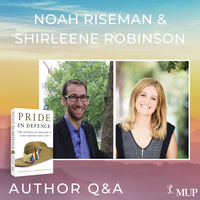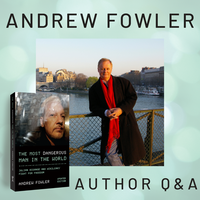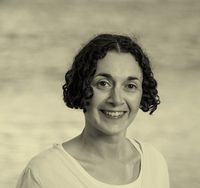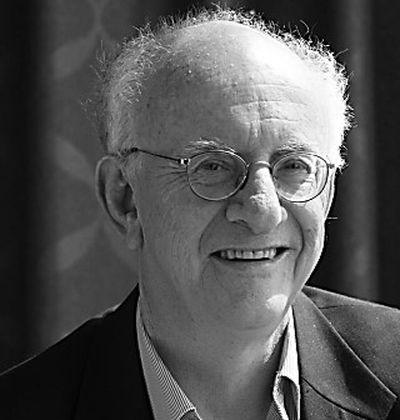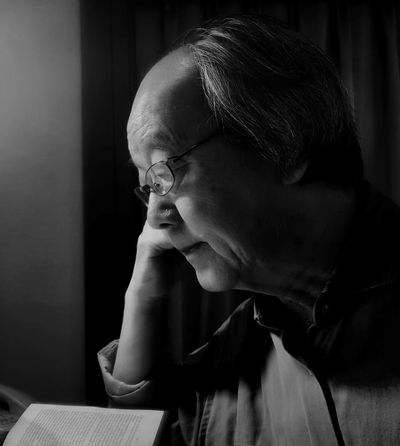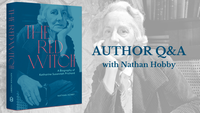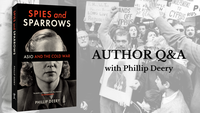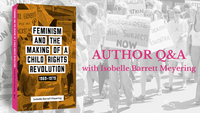Q & A with David Walker and Li Yao—Authors of Happy Together
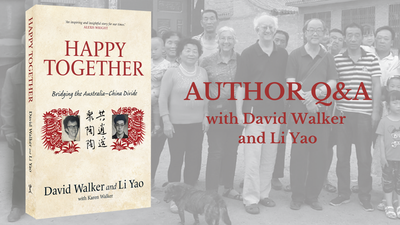
1 What sparked your friendship?
David Walker: Long conversations with Li Yao on train journeys through China as he translated my personal memoir Not Dark Yet into Chinese. We found that we had been born at around the same time, so according to the Chinese zodiac we are both ‘Roosters’.
Li Yao sometimes calls me ‘Elder Rooster’ as I am just slightly older than him.
Li Yao: David and I were born around the same time, and my parents were primary school teachers just like his parents. While I translated Not Dark Yet into Chinese, I kept thinking about what my family and I were going through at similar times in history as David and his family. I particularly wanted to contrast our different experiences. I thought this would make for a very meaningful book. When I told David about my idea, he agreed, and we started writing.
2 What has been the highlight for you in the process of writing and researching?
David Walker: Travelling with Li Yao into very interesting places in northern China that were important in his family history, places that few Australians or even Chinese tourists ever get to see. The extended Li family must have thought these visiting Australians were very strange, but they were always very warm and hospitable to us. We loved northern Chinese food and could never resist a trip to the far reaches of the grasslands of Inner Mongolia or a boisterous lunch in a ger (Mongol tent).
Li Yao: When I wanted to write this book, I had no idea where my ancestral home was. All I knew was that my great grandfather had left Shanxi to come to Inner Mongolia in the late nineteenth century. As a novelist, I didn't think it was necessary to know any more. Shanxi was enough. But David is a historian, and he's very serious about his work. He said you have to find out where your old hometown is. I thought this was impossible because my great grandfather left his home 150 years ago. But David persevered. So, with the help of my Shanxi friends, I finally found my old hometown. It is very interesting and very funny for an Australian historian to help a Chinese writer find his hometown.
3 Tell us about your writing routine. Where do you like to write? When and how often?
David Walker: Some of the book was written while I was living in China, but now I write every day in my study in Melbourne. I try to get as much done in the mornings as possible but tend to do something else in the afternoon. When I first started writing this book, I could see the computer screen, but now as my sight has deteriorated even further, my wife, Karen, takes down my dictation.
Li Yao: I wrote it for more than eight months, from morning till night.
4 What are you currently reading?
David Walker: I have been legally blind with macular degeneration since 2004. This means I can broadly see things around me, but not the fine detail of text or faces. I now listen to books rather than read them myself. I am just starting on a fine but long forgotten book by two Australian journalists, Denis and Peggy Warner: The Tide at Sunrise: a history of the Russo-Japanese war 1904-1905. It is eerily relevant to today’s world. I have recently finished Peter Hatcher’s Red Zone: China’s Challenge and Australia’s Future and David Brophy’s China Panic: Australia’s alternative to paranoia and pandering.
Li Yao: I have just finished my translation of The Yield by Tara June Winch which will be published by the Writer’s Publishing House. Now I am translating The Dickens Boy by Tom Keneally which will be published by the People’s Literature Publishing House.
5 What aspects of culture and identity would you like this book to convey to readers?
David Walker: In this book I’ve tried to convey the long connection that has existed between Australia and China. From the late nineteenth century many adventurous Australians have travelled and lived in China including many enterprising journalists. Australians have often been highly aware of China as a threat but are much less aware of China’s complex cultures and rich history. In these difficult times, listening to other voices is increasingly important.
Li Yao: People-to-people friendships are very important. David Walker, Karen Walker and I are good friends. David and I are brothers. I sincerely hope that the people of our two countries can understand each other better.
